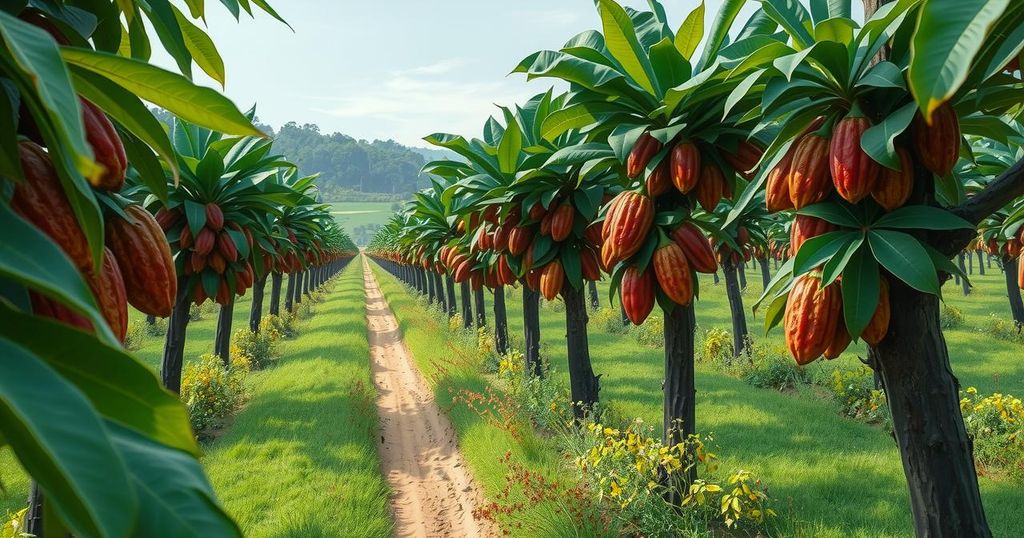Brazil could reestablish itself in the global cocoa market, potentially capturing 13% by 2030, translating to $2.3 billion in revenue and creating 300,000 jobs. The study conducted by Instituto Aya and Systemiq highlights Brazil’s competitive advantages and the challenges it must address, such as access to credit and pest management, in order to capitalize on this opportunity.
A recent study by Instituto Aya, in collaboration with Systemiq, reveals that Brazil could capture up to 13% of the global cocoa market, equating to $2.3 billion in revenue by 2030. Historically the leading cocoa producer in the 1980s, Brazil is uniquely positioned to integrate all stages of the cocoa supply chain. With an established cocoa processing sector and one of the largest chocolate consumer markets, Brazil has the potential to create approximately 300,000 jobs in the cocoa sector.
The study indicates that Brazil’s strength across the entire chocolate supply chain can be harnessed to enhance its international presence. The nation enjoys significant agricultural support from Embrapa and the Cocoa Plan’s Executive Committee (Ceplac), making it a key producer of cocoa seedlings and machinery. Additionally, Brazil’s expertise in agroforestry cocoa cultivation adds to its competitive advantage.
There exists substantial opportunity for cocoa production expansion through the development of degraded pastureland. Industry advocates are pushing for cocoa to be recognized as a priority crop in the upcoming Degraded Pastureland Conversion Program to promote this growth. However, limited access to credit remains a significant barrier, with only 0.05% of agricultural credit in Brazil allocated to cocoa production. Producers also experience low productivity and face challenges from pests such as witches’ broom disease.
Furthermore, integrating cocoa cultivation into forest restoration efforts, particularly in permanent preservation zones and legal reserves, presents another avenue for growth. While the state government of Pará has initiated regulations to permit cocoa cultivation within agroforestry for legal reserve restoration, a comprehensive federal law has yet to be established.
On the industrial front, Brazil’s established cocoa processing sector, featuring major players like Barry Callebaut and Cargill, indicates significant growth potential. The country’s position as both a substantial global supplier and a major chocolate consumer provides a dual opportunity to strengthen its cocoa industry.
To address the challenges faced by the cocoa sector, the report suggests creating credit lines with lower interest rates and favorable loan terms. Recommendations include engaging cocoa processors in forward contracts with farmers to provide price stability, thus enhancing access to financing for small-scale producers who struggle with collateral demands.
Enhancing rural technical assistance programs and increasing investment in research and development are also crucial. A focus on mechanization for pruning, harvesting, processing, and biotechnological innovations to combat pests will be essential for improving Brazil’s cocoa production significantly.
In conclusion, Brazil possesses the potential to significantly expand its cocoa market share, driven by its comprehensive supply chain capabilities and established processing sector. However, addressing the challenges of limited access to credit, low productivity, and pest management will be essential to realize this potential. With strategic investments and support, Brazil can reclaim its status as a global cocoa leader.
Original Source: valorinternational.globo.com




